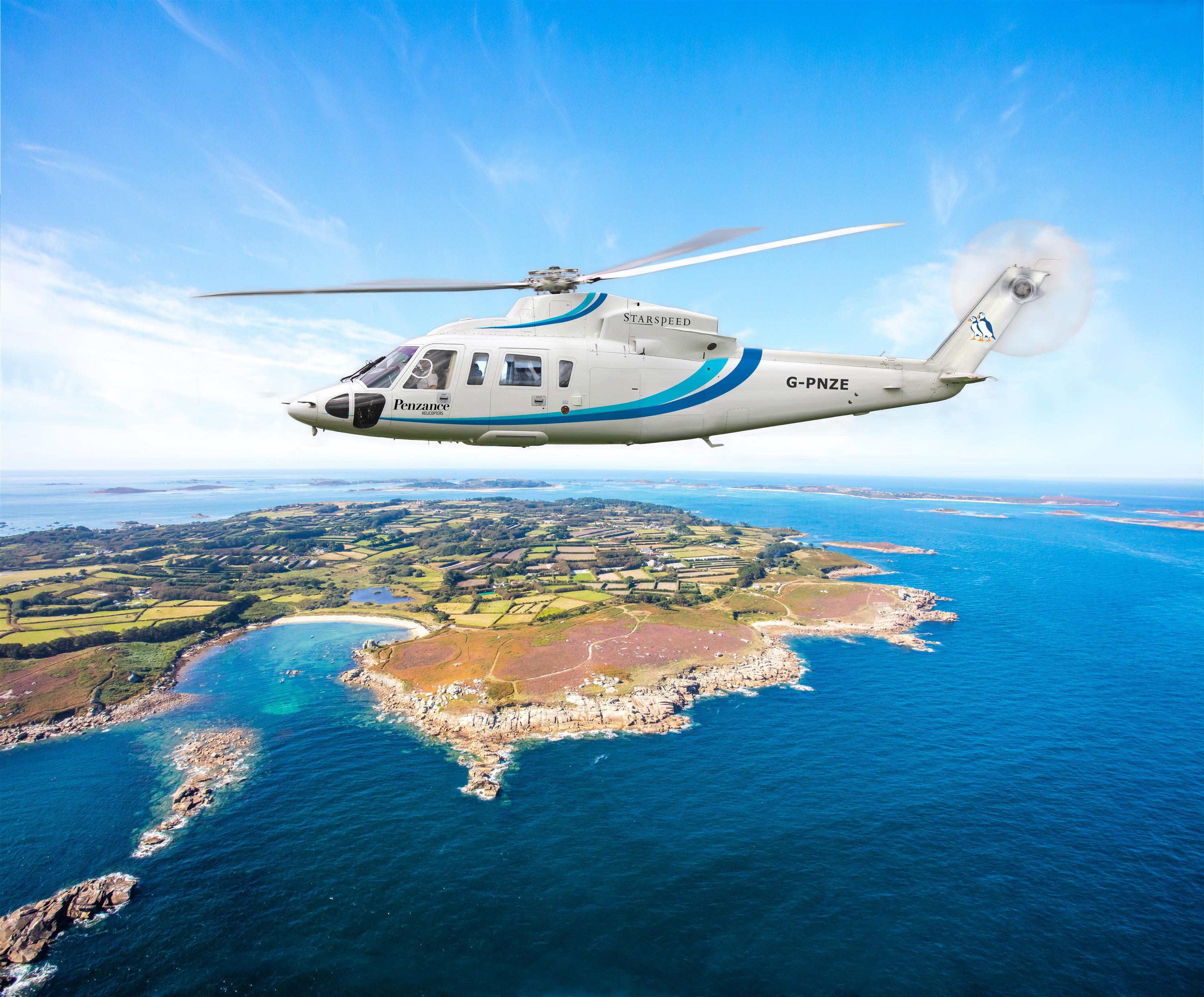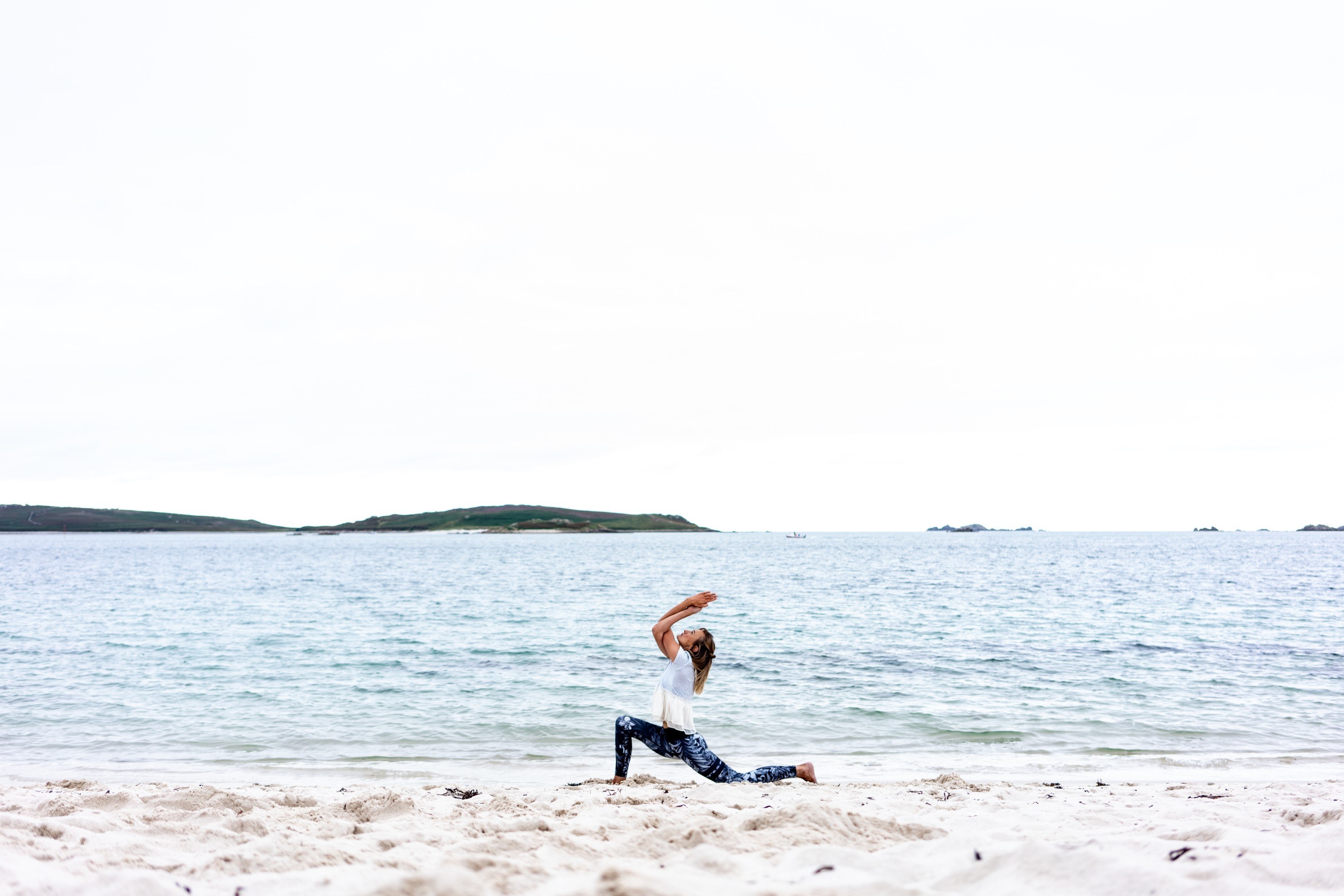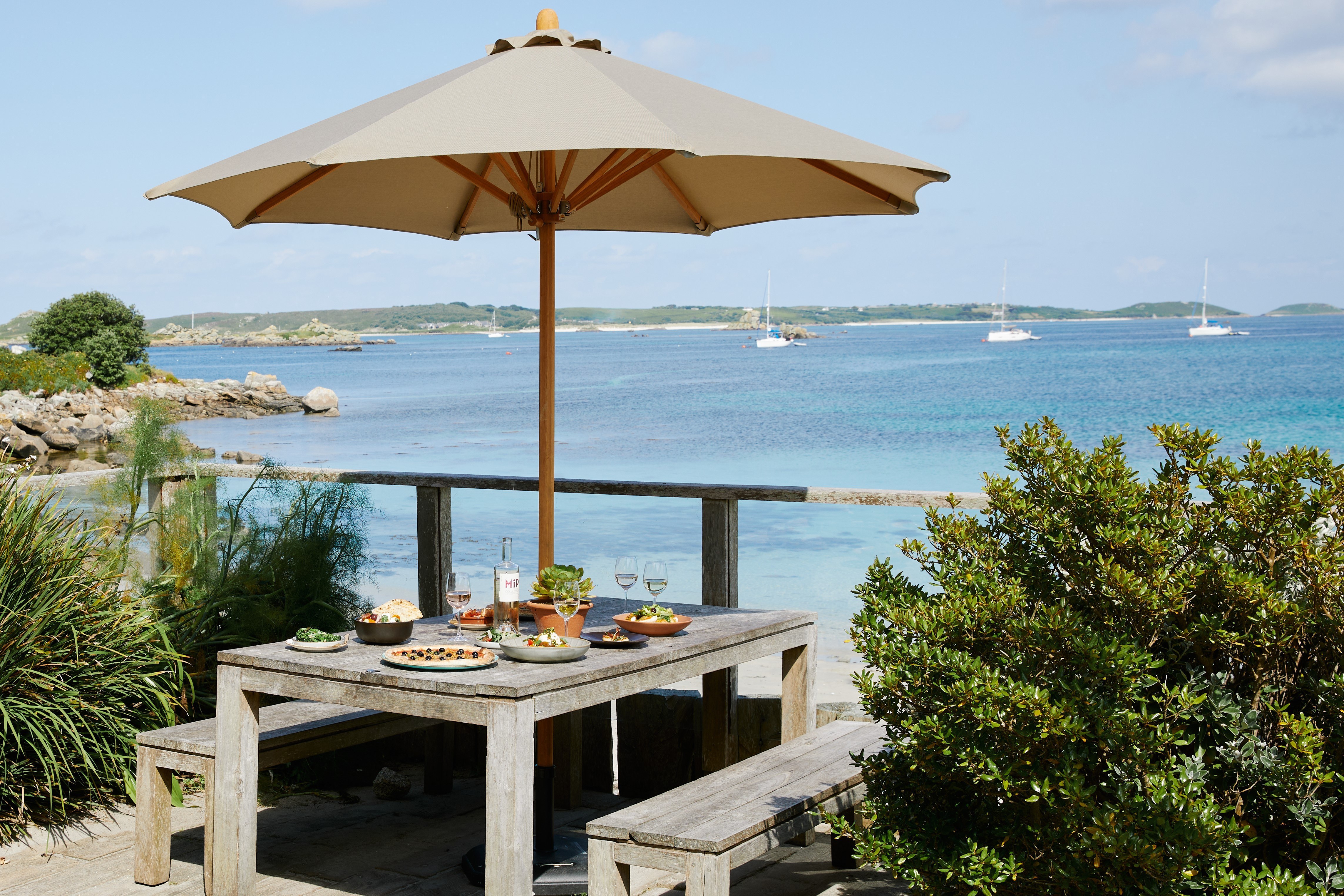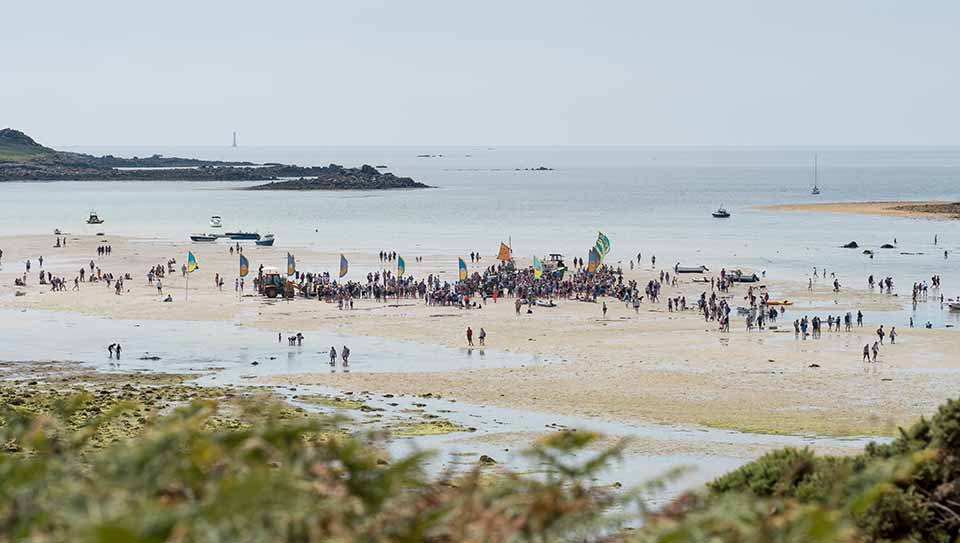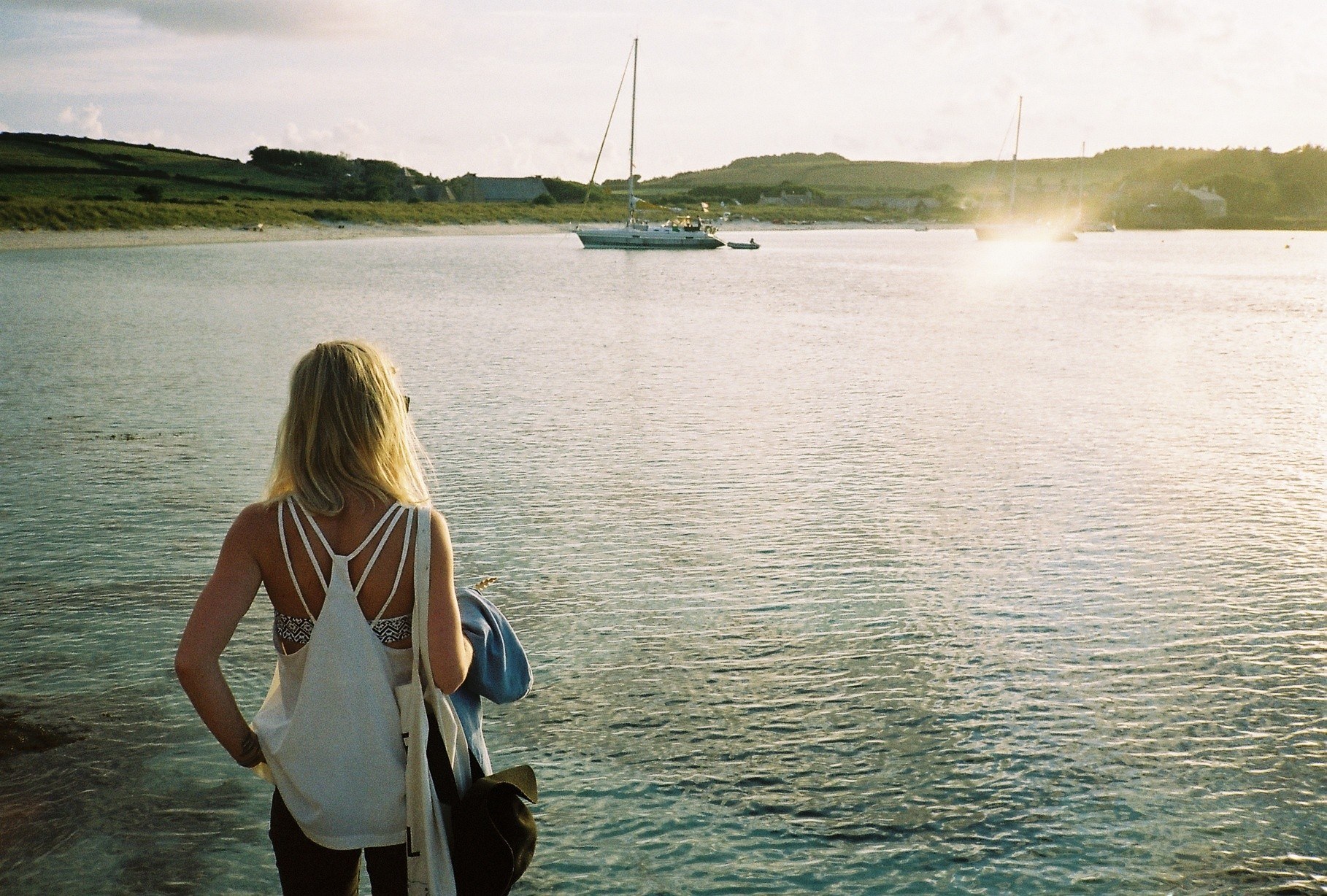When the Boat Comes In
We’re gathered around the fire in a Scillonain fisherman’s cottage on Bryher, the home of the Pender family for generations. Simba the cat has bagged the prime spot in front of the flames, slowly warming himself, his nose twitching periodically at the smell of supper cooking in the Aga. It’s fish pie – what else?
“We do eat a lot of fish,” laughs Amanda Pender. “Everything we catch is used in one way or another so we eat well – and so does the cat!”
It is winter; time to take stock of the first season for ‘Island Fish’ – Scilly’s newest family business from one of its oldest families. This particular business meeting takes place in Amanda’s kitchen over supper and a glass of wine. “It’s the best way of getting everybody here,” says Amanda. Meeting organisers the world over could learn a lot.
Sitting alongside siblings Mark and Amanda are their parents, Mike and Sue. It is midweek, so the youngest generation of Penders are at school, but in the holidays Amanda’s children Chessen and Shamus, and Mark’s children Arran and Lauren, would be here too.
“The children help because they want to,” says Mark. “Chessen enjoys it – and it pays for her horseriding habit. Lauren is so passionate about the stall and she’s a natural. The boys are happy as long as they’re pottering around in the punt burning my fuel making deliveries, or going out and catching a few mackerel or pollock, hauling a few pots.”
Shamus and Arran are young fishermen in the making. They accent their traditional oilskins with a modern twist: hoodies proudly emblazoned with the name of the fishing boat built by their grandfather Mike nearly four decades ago, the Emerald Dawn. With such a fishing pedigree on Scilly, how could they not be proud?
“If you go down to the Churchyard there are quite a few generations down there,” says Mike who, despite being in his seventies, still heads out to sea each day to check the pots. “My father fished, and his father before him. Sue and I started on Tresco in 1972, five years after we got married.”
“Amanda was born that year,” chips in son Mark, “They had to pay for her somehow!” His sister rolls her eyes. In those days Sue’s father Dennis supplied shellfish to the Island Hotel. Every Saturday he would walk down to Old Grimsby with a basket of lobsters in his wheelbarrow, usually with a young Mark in tow. At the kitchen door the chef would weigh out the lobsters before they went round to reception to be paid.
When Dennis hung up his pots Mike and Sue took over his round, and began selling from the door. Over the decades little has changed. The family may have moved across the channel to Bryher but they still sell from the door, delivering fish to Tresco’s guests and restaurants daily and selling from their stall at Tresco market.
“Selling direct to our customers is one thing that sets us apart,” says Sue.“Previously a lot of fishing on Scilly was wholesale. Once a week the fish would go off to the mainland and then some would come back a couple of days later packaged or frozen. It was madness.
“For us the pleasure is in meeting people. Over the years our customers have become our friends. There are lots of families who visit Tresco where we know two or three generations of their family and they know two or three generations of ours. Our Christmas card list gets longer by the year!”
Selling direct to customers isn’t just a ocial pleasure though; it’s good business. “There’s definitely a market for it,” says ark. “People love it. It’s something they can’t do on the mainland; you’re never going to find fish that fresh outside Scilly. I often tell people a good vet would get the lobster back on its feet!”
Mark is undoubtedly the family comedian, but he’s also a skilful and dedicated fisherman. Seawater courses through his veins, I’m sure of it, and with a family history like his, how could it not? Make no mistake, though: even with their ancestry, not all has been plain sailing for this fishing family. Less than twelve months ago Island Fish could so easily never have come about.
“Mark and I had been talking about it for years, usually over a glass of wine, which probably explains why it never came to anything,” Amanda muses. “My husband Andy was away at the beginning of the year and he just told me to go for it. He quoted from Julius Caesar: ‘There is a tide in the affairs of men which, taken at the flood, leads on to fortune; omitted, all the voyage of their life is bound in shallows and in miseries.’ Island Fish was born. The early starts and long days are his fault I guess!”
A normal day for Mark and Amanda starts at 4am, when the siblings start picking crab. An hour or so later Mark heads to sea, pointing the bow of his boat Tradewinds to the distant horizon where the first light of day is just beginning to show. After hours hauling and setting pots Mark returns to shore mid-afternoon, sets the next day’s crab to boil, and heads across to make the day’s deliveries to Tresco. When he lands back on Bryher he rejoins Amanda at the picking table until late into the evening. Repeat ad infinitum.
Now in his seventies Mike allows himself a well-deserved lie-in until about six in the morning, when he heads out to sea in the Emerald Dawn. After many years of early starts he understands better than anyone just how hard the life of a fisherman is. “Mark works hard,” he says. “To catch the volume of crab and lobster we need he has to haul more than 200 pots. Sometimes the weather is on your side, but even when it’s blowing a gale and lashing with rain you have to go, because we can’t let people down. It’s a long, hard day, and to then come ashore and start grading and picking is tough. Sometimes the fishing is the easy bit.”
Every day Mark and Mike head out as far as Bishop Rock and across to St Martin’s Head in search of their aquatic quarry. Their skill lies in knowing where the fish will be feeding at any state of tide, and in any weather; knowledge that can never be learned, only passed down through the generations.
Back on shore the Pender ladies are working equally hard, picking crab and lobster and preparing an array of delicious homemade products, from Amanda’s tasty fish pie to Sue’s delicious crab quiche, cooked to a family recipe.
“They make our catch look so incredibly inviting,” says Mike proudly.
In between the picking, cooking and preparing, the shop at the front of the Pender’s house on Bryher must be manned, and orders for guests and restaurants prepared. On Tresco market day, things are even more frenetic.
“We aim to leave for the market about 3.30am,” says Amanda. “Inevitably though it ends up like something from Ready, Steady, Cook! When we reach Tresco there’s usually a queue of people waiting, patiently but expectantly, to see what we’ve brought.”
On many occasions over the summer the fish doesn’t even touch the shore. Often Mike and Amanda are Trescobound, making their way across to the market in Mike’s green punt just as Mark returns from sea. The day’s haul is handed over mid-channel.
“We’ll go over in all weathers; there’s always someone there waiting. I remember one of the last markets of 2015: there was a stiff wind and a spring tide, so the water was up over New Grimsby Quay and still Dad and Lauren were standing there doggedly manning the stand, up to their ankles in water. It was like King Canute fisheries!”
It would take more than wet feet to keep these hardy Scillonians down. They’ll still deliver to Tresco, even if they have just one order for the day. Home deliveries are made to elderly residents who can’t make it to the stall. On one occasion over the summer, Bryher’s Crab Shack found themselves one crab short and Amanda found herself taking a mid evening run down to the barn, live crab in hand. The guests were none the wiser.
“Our customers look after us, and we look after them,” says Mark. “The businesses and guests of Tresco and Bryher have been good to us over the years – and we don’t take that for granted. It’s how things work on Scilly: everyone looks after each other and everyone is better for it.”
These traditional values of community spirit, trust and dependability are at the very heart of what this family business is all about, but that doesn’t mean they’re stuck in the past. Some of their ideas for the future will see them at the cutting edge of sustainable fishing.
Learning from the decline in Scandinavian lobster stocks, Island Fish is about to enter into a partnership with the National Lobster Hatchery charity in Padstow, launching a ‘buy one, release one’ scheme. For every lobster order Island Fish receives they will donate £1 to the Hatchery to help raise and release a lobster. Already, egg-carrying female lobsters have their tails notched and are released back into the ocean, giving them at least another two year’s breeding before they can be caught. Scillonian fishermen also have the most stringent minimum landing size in the country, meaning juvenile lobsters are left in the ocean to reproduce for longer.
“Sustainability is a bit of a buzzword,” says Mike. “It’s just common sense really. You can’t go out there and continually harvest the seas without making sure there’s a plentiful supply of little ones coming through. We have to look out for the fish stocks, and for our children and grandchildren’s livelihoods. “I’ve actually kept a record of all the lobsters I’ve caught since 1972, and I think the efforts are working. Certainly in the last ten years the numbers around Scilly have not been declining; if anything it’s the opposite.”
“Perhaps you’ve finally learned to fish,” jokes Sue. The family laughs. Simba the cat licks his lips and yawns. I take this as my cue to leave the family to their meeting – and Simba to his dinner.
